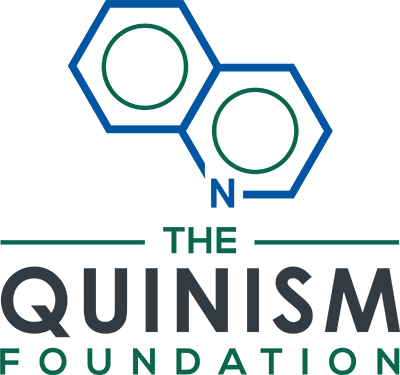The Quinism Foundation Will Address a Committee of the National Academies Investigating the Long-Term Adverse Health Effects of Mefloquine Among Veterans
The Foundation Cautions the Department of Veterans Affairs (VA) Against Delaying Long-Overdue Action to Screen Veterans for Mefloquine Exposure Pending the Completion of the 18-Month Study
WHITE RIVER JUNCTION, VT. (PRWEB) JANUARY 28, 2019
The Quinism Foundation has accepted an invitation to address a committee of the National Academies of Sciences, Engineering, and Medicine on Monday, January 28, 2019, in Washington, DC, at the first meeting of a study sponsored by the Department of Veterans Affairs (VA) investigating the long-term adverse health effects of mefloquine and related antimalarial drugs among veterans.
“I am delighted to be addressing the distinguished members of this committee,” said Remington Nevin, MD, MPH, DrPH, executive director of The Quinism Foundation, “and to share with them compelling evidence that the adverse health effects of mefloquine, tafenoquine, and related quinolines are not mere ‘side effects’, but symptoms of a disease called neuropsychiatric quinism caused by poisoning of the brain and brainstem by these drugs. The signs and symptoms of quinism reflect the localization of known neurotoxic injury of drugs of this class.”
The Quinism Foundation has cautioned the VA against further delaying long-overdue action on mefloquine pending the completion of this 18-month study. The Quinism Foundation has previously called upon the VA to publicly provide accurate information to veterans on the acknowledged adverse health effects of mefloquine [1]; to begin screening veterans for a history of symptomatic mefloquine exposure [2]; and to ensure VA disability examiners are considering the acknowledged long-term adverse health effects of mefloquine when conducting disability evaluations for PTSD and related conditions [3].
“The VA has thus far declined to act on any of these recommendations,” noted Dr. Nevin, “and has justified this inaction by claiming ‘that the science governing potential long-term health effects from [m]efloquine is unclear’ [4].”
“But the science is clear,” countered Dr. Nevin. “The U.S. Food and Drug Administration (FDA) acknowledges that neuropsychiatric adverse effects from mefloquine, including insomnia, depression, anxiety, and paranoia, among others, can be long-term and last years after use. Authors at the U.S. military’s Walter Reed Army Institute of Research (WRAIR) [5], where mefloquine was developed, have noted that ‘mefloquine toxicity can persist for several years after exposure has been discontinued, with little to no abatement in symptoms over time.’ Even the VA first warned its clinicians of possible long-term neuropsychiatric adverse effects from mefloquine fifteen years ago [6].”
Dr. Nevin noted concerns at the proposed scope of the study, and at the limitations on the evidence that the committee will be permitted to consider. Dr. Nevin also noted concerns that certain of the proposed study committee members who have worked in areas of psychiatry and neurology and malariology research may have conflicts of interest related to their prior research in these areas. However, Dr. Nevin expressed the hope of the foundation that the committee would not be unduly affected by these limitations.
“The Quinism Foundation values the proposed membership of the ad-hoc study committee concerning its expertise in epidemiologic methods, public health policy, neurophysiology and neurobiology, and drug regulation,” noted Dr. Nevin. “We hope that these committee members will not limit their review to the published literature, much of which is methodologically flawed and reflects the biases of its organizational sponsors, many of whom have significant conflicts of interest; and that instead, the committee will consider all available evidence, including pharmacovigilance data available to international drug regulators, who are in clear agreement based on their review of this evidence that mefloquine causes permanent neuropsychiatric adverse effects.”
“However, given that the VA’s request for this unduly restrictive study comes amidst years of inaction on mefloquine, The Quinism Foundation is concerned that the VA’s intent may simply be to further delay long-overdue action, and to launder its own biases and conflicts of interest through the imprimatur of the National Academies,” said Dr. Nevin.
About The Quinism Foundation
The Quinism Foundation, founded in January 2018, in White River Junction, Vermont, promotes and supports education and research on quinism, the family of medical disorders caused by exposure to quinoline drugs, including mefloquine and tafenoquine.
Dr. Nevin is a board-certified occupational medicine and preventive medicine physician and former U.S. Army medical officer and epidemiologist. He is the author of more than 30 scientific publications on malaria and the quinoline antimalarials, including “Neuropsychiatric Quinism: Chronic Encephalopathy Caused by Poisoning by Mefloquine and Related Quinoline Drugs,” to be published in the upcoming Springer Nature book, “Veteran Psychiatry in the US,” (https://www.springer.com/us/book/9783030053833).
1. The Quinism Foundation. The Quinism Foundation Calls on the Department of Veterans Affairs to Update its Mefloquine Website. June 26, 2018.
Available at: https://quinism.org/press-releases/the-quinism-foundation-calls-on-the-department-of-veterans-affairs-to-update-its-mefloquine-website.
2. The Quinism Foundation. The Quinism Foundation Calls on the Department of Veterans Affairs to Screen Recent Veterans for Symptomatic Mefloquine Exposure. May 29, 2018. Available at: https://quinism.org/press-releases/the-quinism-foundation-calls-on-the-department-of-veterans-affairs-to-screen-recent-veterans-for-symptomatic-mefloquine-exposure.
3. The Quinism Foundation. The Quinism Foundation Expresses Concern That Department of Veterans Affairs (VA) Disability Examiners Are Misattributing Chronic Adverse Effects of Mefloquine to PTSD. November 29, 2018. Available at: https://quinism.org/press-releases/the-quinism-foundation-expresses-concern-that-department-of-veterans-affairs-va-disability-examiners-are-misattributing-chronic-adverse-effects-of-mefloquine-to-ptsd.
4. Glenn M. Letter from the Deputy Director of the Veterans Benefits Administration to Dr. Remington Nevin, December 31, 2018.
5. Livezey J, Oliver T, Cantilena L. Prolonged Neuropsychiatric Symptoms in a Military Service Member Exposed to Mefloquine. Drug Safety – Case Reports. 2016;3(1):7.
6. Perlin JB. Under Secretary for Health’s Information Letter IL 10-2004-007. Possible Long Term Health Effects from the Malarial Prophylaxis Mefloquine (Lariam). 2004.

